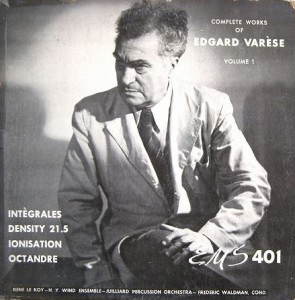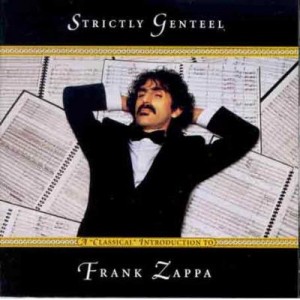In interviews, Zappa frequently recalled his fifteenth birthday when, in lieu of any gifts, he requested permission to make a long distance phone call. Following some lead–he claims it was a hunch, deducing that “a person who looked like a mad scientist could only live in a place called Greenwich Village†[1]–Zappa found Varèse’s phone number and address by dialing New York information.
His obsession with The Complete Works of Edgard Varèse, Vol. I had grown to the point of seeking out the composer himself. His timing, however, was less than ideal and the older composer was away. Louise Varèse informed Zappa that Edgard was in Brussels working on a composition–Poème électronique–for the World’s Fair, and suggested he call again in a few weeks. [2]
I did. I don’t remember what I said to him exactly, but it was something like: “I really dig your music.†He told me he was working on a new piece called Deserts. This thrilled me quite a bit since I was living in Lancaster, California then. When you’re fifteen and living in the Mojave Desert and find out that the world’s greatest composer, somewhere in a secret Greenwich Village laboratory, is working on a song about your “home town†you can get pretty excited. It seemed a great tragedy that nobody in Palmdale or Rosamond would care if they ever heard it. I still think Deserts is about Lancaster, even if the liner notes on the Columbia LP say it’s something more philosophical. [3]
Continue reading ““The Counsel of a Veteran”; Zappa’s letter to Varèse”
 The image to the right depicts the cover of the Complete Works of Edgard Varèse, Volume 1. According to Zappa, this was the first record he ever owned. (And one that changed everything for him!)
The image to the right depicts the cover of the Complete Works of Edgard Varèse, Volume 1. According to Zappa, this was the first record he ever owned. (And one that changed everything for him!)